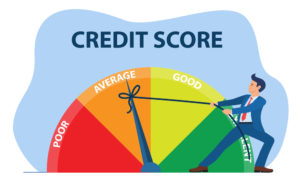How To Build Your Business Credit Score?
The most important part of running a business is managing the health of its finances, and business credit scores are the Holy Grail for keeping a healthy balance in these finances. Your business credit score is the signal (red or green) for your company’s ability to handle its finances, debts, and power to purchase.
They reflect how well you can meet financial obligations, such as paying bills and invoices on time. It is important to build these business credits because they help you increase your power to borrow more and bring the best trade and financing credits.
These business credits also bring secured repayment options from creditors, vendors, and suppliers. The simplest way to build and monitor healthy business credit is to sign-up with the Equifax Small Business Grade.
Even though you have many different ways to get financing for your business on low credit, building your business credits brings long-term growth and success.
So if you’re the one who is trying to learn more about how to build your business credit score, then we’ve got you covered in this blog.
Table of Contents
What Is Business Credit, And Why Is It Important?
Creditors judge your creditworthiness based on how good your business credit is. These credits reflect your business’s potential for receiving business financial credit based on the risks (high or low) it poses to the lenders. These business credit scores show how capable your business is of on-time repayment of the debts.
It is something all creditors, vendors, lenders, and suppliers often look at when evaluating your business as they consider your loan application.
Each credit bureau, TransUnion and Equifax, reports a business credit score. They have their unique methods of calculating and displaying business credits for different businesses. These business credit scores vary from 400 to 800, reflecting the wider spectrum of risk from poor to excellent scores, respectively.
Now the question you may have been wondering is why these business credits are so important for you?
Building the business credit score for your company is important in many different ways. Here are a few ways in which they are the best in helping your business;
- They help you acquire financing for your business very quickly and easily.
- They help you secure the best trade credit and terms &conditions with your creditors.
- They also help you protect your credit score reports and your credit score.
And now comes the best part of the article you have been waiting to read; how you can build your business credit score.
7 Tips To Build Business Credit
It is more tricky and complicated to build a business credit score than to build a personal credit score. However, it does take time to build healthy business credits, just as your personal credit would take.
Irrespective of the size and time your business has spent in the market, you are still trying to learn how to build your business credit score. You need to follow the following seven steps to have a firm’s grasp on building business credit for your business.
1. Checking Business Credit And Personal Credit
You can check your business credit score through several sources; however, these reports on business credit do not come for free, unlike your personal credit report. The major business credit bureaus, Experian, Dun & Bradstreet, and Equifax will compile a complete business credit report of your business against a fee.
A few services allow you to have a summary of your business credit score and reports free of charge to access. You won’t get a single business credit report from all the competing bureaus as they use their own set of tools and methods to calculate and compile credit reports.
The suppliers, vendors, and creditors also have a specialty check for business credit reports while they assess your business financial risk before approving you a loan.
2. Establishing Business Credit for Credit Report
It is possible that you may not have established your business credit report yet if you have been able to find one anywhere. May because you have used your personal credit card for your business expenses, and the credit score is reported on your personal credit.
Even though there are few possibilities for generating a business credit score based on your personal credit history, certain business financial information completely relies on business-related information to calculate the scores.
The following steps will help you establish your business credit score;
- Form a limited liability company, LLC, or turn your sole proprietorship into a business to ensure the separation of business credit and personal credit identities.
- Apply for an EIN, federal employer identification number, and a free-of-cost service provided by the IRS. It is a social security number but for your business.
- Apply for a separate bank account for your business using your business’s registered name.
- Apply for a phone line specifically used for your business only using your registered business name.
- Apply to get registered with Dun & Bradstreet and get your D-U-N-S number, a nine-digit number to identify all your business locations. It’s free for all businesses.
Business credit bureaus use the EIN and D-U-N-S to identify the activities of your business and its payments as they get reported. The numbers are also used for generating scores by a few business credit-scoring systems.
A healthy history of your business’s on-time payments or early payments takes your business a long way and helps create the strongest and the best financial track record any business can ever have.
3. Get A Business Credit Card
To build a business credit profile, you’ll have to have accounts and vendors. The credit reporting agencies use your credit accounts and vendors to track your spending and payment history to work on your business credit profile.
Applying for a business credit card is a good start. These business credit cards also offer many benefits or rewards programs helpful for business owners. These offers and rewards are business credit card exclusive and are offered on personal credit cards.
4. Work With Vendors Partnered With Credit Bureaus
Another great way to build your business credit scores is to work with the vendors partnered up with the credit agencies. It simply means finding vendors who report payments to the credit bureaus and opening an account with them.
Don’t hesitate to ask whether the vendors you are already working with report payments to the credit reporting agencies or not. Please do your homework on the vendors that do so and try opening an account with them.
It will leave a good impression on your business credit scores.
5. Early Repayment
The best way to score a higher PAYDEX score on the most extensively used business credit score is to pay before the due date. On-time payments help you secure a score of 80 as per the Dun & Bradstreet PAYDEX. The score spectrum ranges from 1 to 100, and 100 is the best score you can achieve. This score is completely based on the payments you have returned to your vendors, so if you want to achieve the best score on PAYDEX, start paying your vendors early.
6. Manage Your Cash Flow With Your Business Credit To
Cash flow management is a life force of different businesses, especially if they are small or startup businesses. The main benefit of building healthy business credit is you get the best interest rates and favorable terms & conditions. Your business credit card can also manage it.
7. Keep Track Of Your Business Credit Reports
Business credit reports can get hurt, become difficult, and very expensive if they have any marks of fraud or errors and further hinder your business from borrowing money from creditors, lenders, vendors, and suppliers.
To avoid these errors and frauds, you need to keep track of your business credit reports and monitor them at least once every year; if you see any activity that has nothing to do with your business, file a dispute to correct it with your respective business credit agency.
Benefits Of Healthy Business Credit Score
Having a healthy business credit score provides a handful of benefits for a small business, which include;
- It will bring favorable payment terms & conditions for your business with new suppliers and vendors.
- It will not have to prepay for required services and products to purchase.
- It will allow you to acquire the best APR and credit terms from banks and creditors.
- Maintaining a healthy business credit score brings consistency to your business as you protect and monitor them.
Bottom Line!
Whether you’re a well-established company or someone who just started a startup, if you carefully carve your steps to take care of your business credits, you will eventually have a very well-established business credit rating within a few months. Patience and consistency will help you in new accounts appearing on your business credit report in a few months. Because when you get it, you’ll be required to maintain your on-time payments to keep your business credit scores healthy for a longer time.






